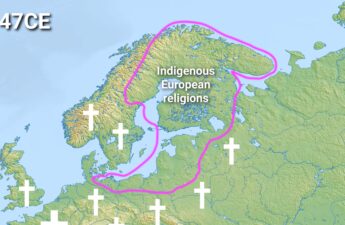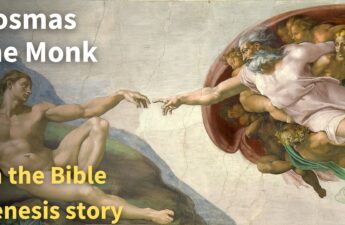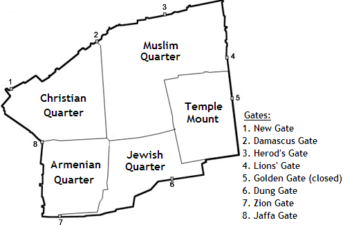A new Moses One of the more fascinating tales from the late Roman Empire is about a man called Moses of Crete who declared himself to be the Messiah that the Jews had always been waiting for. He was, he told his fellow Jews, a reincarnation of his Old Testament namesake and promised them an even more spectacular miracle than…
Celsus on the ‘resurrection’
The resurrection of Jesus as written in the gospel narratives is arguably the major key belief in Christianity. So let’s take a look at what the famous second century pagan philosopher Celsus had to say on the crucifixion and the Christian claim of Christ’s resurrection from the grave. Celsus was a strong critic of Christianity in an age when this…
Christian critics of Julian the Apostate – Socrates Scholasticus
Julian the apostate, the last Roman Pagan Emperor had a short reign of less than two years but he made a big splash and is arguably the most well known Emperor of the late Roman period. But various Christian theologians, chroniclers and thinkers would be highly critical of him and his championing of paganism after his death. So this article…
Why did Jesus came so late in human history
Arnobius, the 4th Century Christian scholar on the issue. Why did Jesus – if we assume that he was divine for argument’s sake – come when he did and not earlier? This was a popular critique of Christianity by pagans during the Roman period and it’s a question not only early Christians struggled to answer but Christian apologists right up…
Slavery and the early Church fathers
Slavery, an accepted practice by Christians and Jews The regulation of slavery in the Old Testament and the implicit acceptance of the practice in the New Testament is arguably the most contentious issue in the Bible. You would think Jesus, supposedly God incarnate and who grew up studying the Jewish scriptures, would condemn the practice of slavery outright and in…
Paganism in 12th century Europe
By the time of the official end of the Western Roman Empire in 476CE, most of mainland southern Europe and France and England had been converted to Christianity. And because the Germanic tribes that migrated into the territory of the Romans – and who would form the new kingdoms that replaced the empire had been converted as they crossed the…
The Vandal conquest of North Africa
(d.335) Wisimar . Pagan (359–406) Godigisel Pagan? (407–428) Gunderic Arian Christian (428–477) Gaiseric Arian Christian. Major persecution of Catholics (477–484) Huneric Arian Christian. Major persecution of Catholics (484–496) Gunthamund Arian Christian (496–523) Thrasamund Arian Christian (523–530) Hilderic Arian Christian (530–534) Gelimer Arian Christian. Lost Kingdom in war against
Cosmas the Monk on Genesis
Christians had been wrestling with the numerous weaknesses and problems in the Genesis story ever since the beginnings of Christianity. And these flaws and improbabilities in Genesis were ridiculed by prominent pagan polemicists like Celsus, Porphyry and others. So naturally many Christian thinkers and theologians for their part defended the Genesis story. Cosmas Indicopleustes, one of the most well travelled…
The Tree of Thor
One of the most famous pagan holy sites in what is now Germany during the early Medieval age was a sacred grove in the region of Hesse in which stood a very large and majestic oak tree. A contemporary account calls it ‘a certain oak of extraordinary size called in the old tongue of the pagans the Oak of Jupiter.’…
Aelia Capitolina, the pagan Jerusalem
It’s not commonly known that city of Jerusalem – the centre of Jewish culture and religion was actually rebuilt from scratch during the second century. The city had been completely razed to the ground during the First Jewish-Roman War by Roman forces. But around 60 years later the Roman Emperor Hadrian ordered a new city to be built on the…








